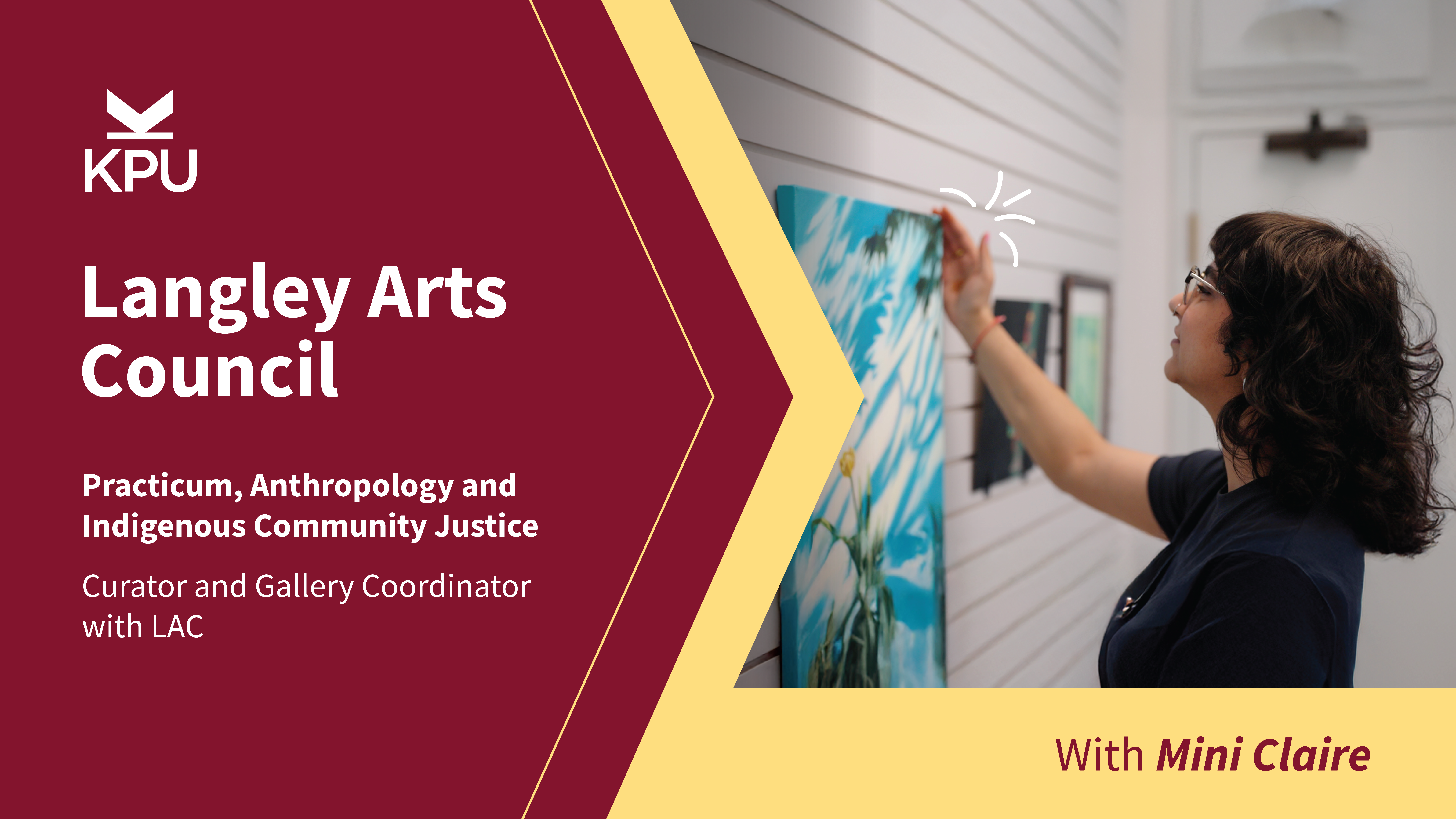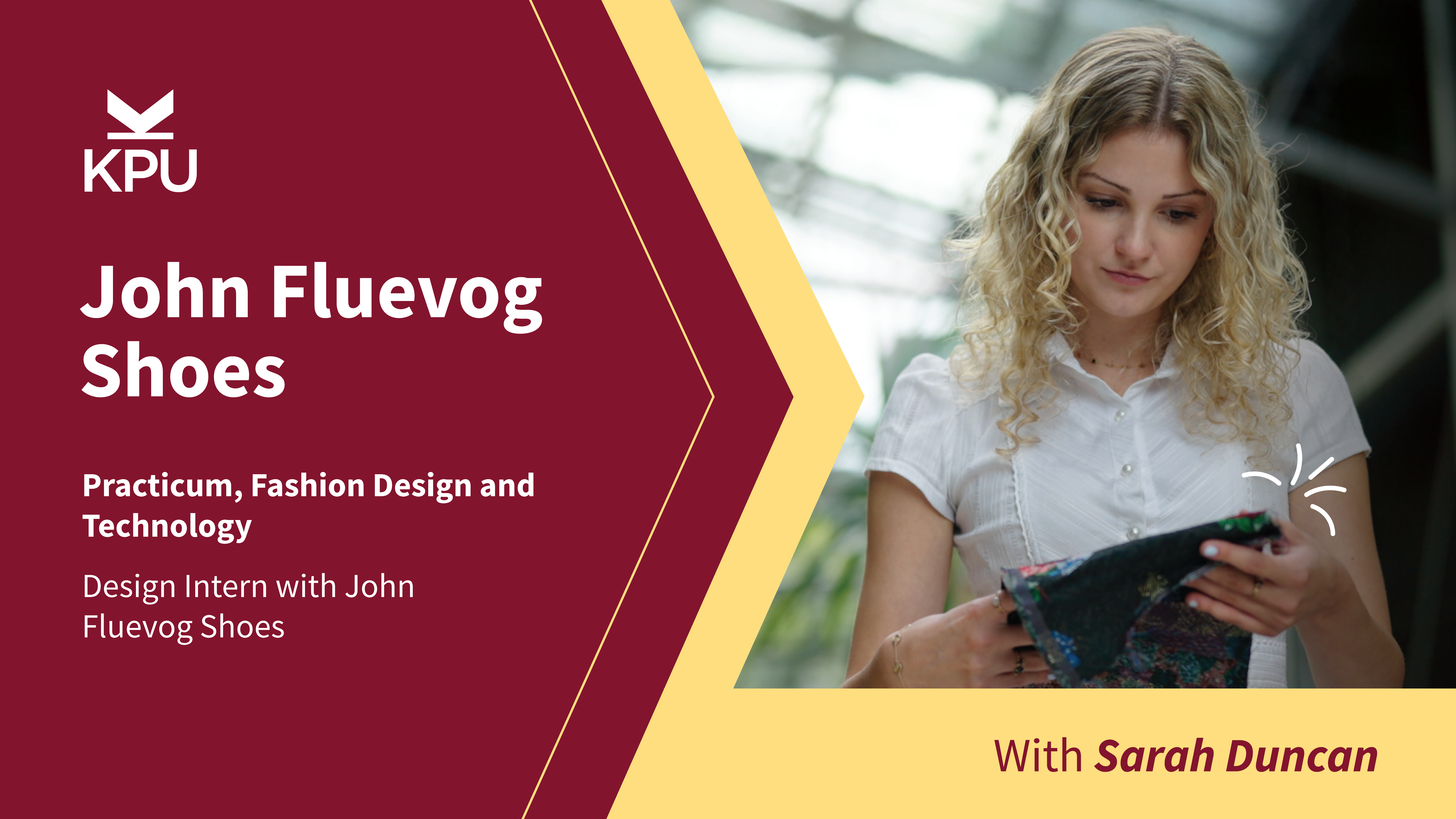Work-Integrated Learning
Work-Integrated Learning (WIL) is a purposeful, planned and assessed work-based experience that comes in many forms, including practicum courses, co-ops, service learning, and more. At KPU, students have the opportunity to integrate learning with its application in employment and/or community settings.
For employers, hiring students can bring new ideas that companies need. These experiences may lead to the hiring of future employees. For students, WIL experiences are an opportunity to practice what you have learned in class and apply it in workplace and/or community settings. These hands-on experiences can facilitate networking as you introduce yourself to prospective future employers and/or community leaders.
Ways that partners can engage with students
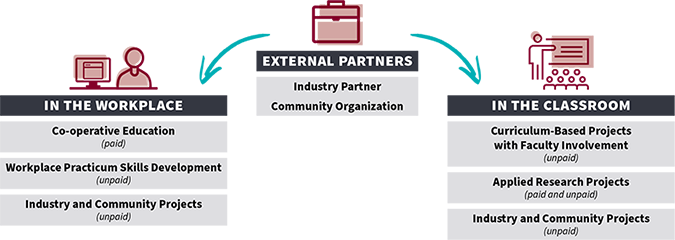
KPU has 50+ faculty who routinely engage with external relationships to tie hands-on learning to students' courses. Unpaid Work-Integrated learning has seen more than 5500+ student experiences this past year. Also, 15+ programs offer Co-op and these are paid positions.
Co-op - Paid options for students WIL - Unpaid options for students
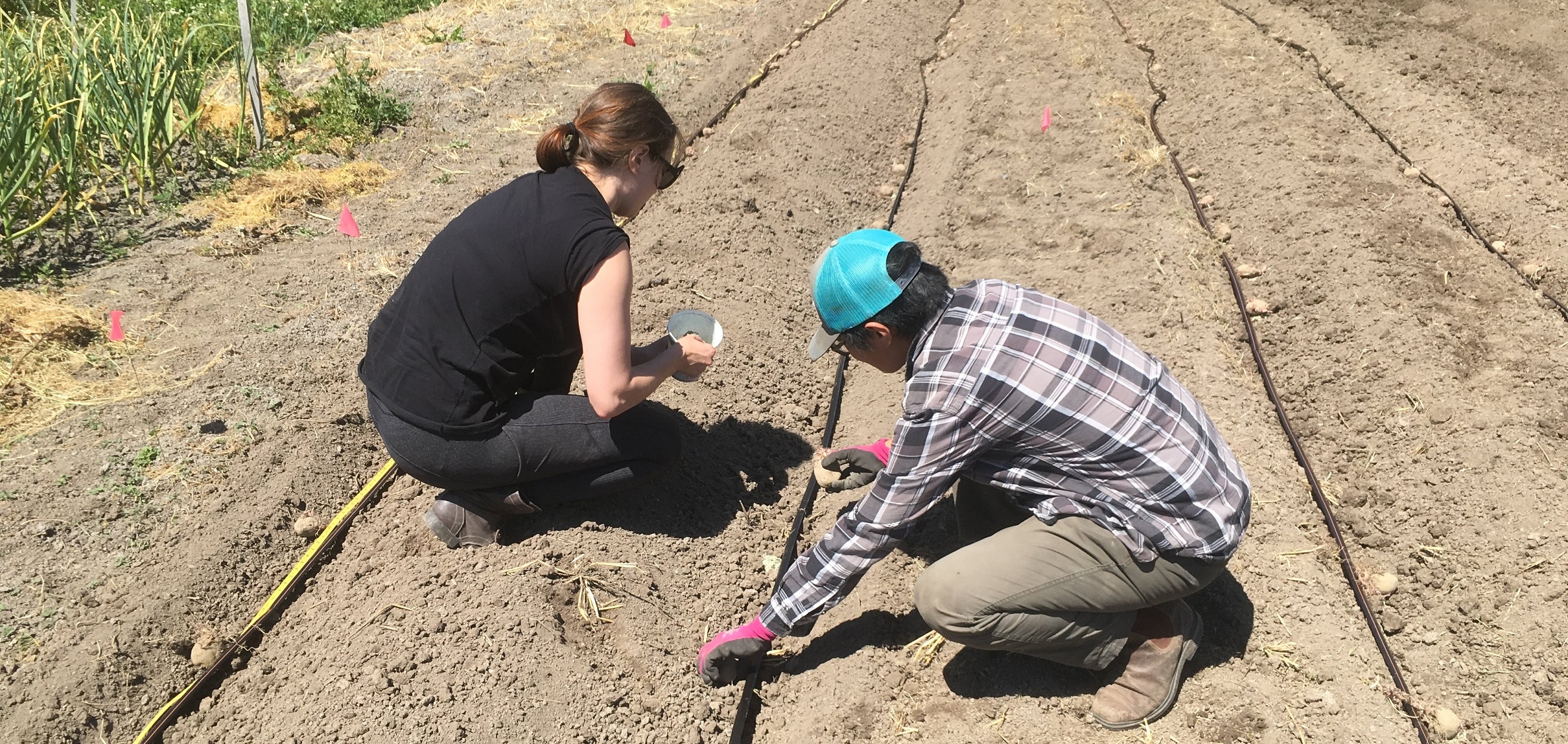
Examples of Course-based unpaid Work-Integrated Learning:
- Resolve a marketing issue for a firm
- Take part in a community art project
- Participate in crop production
- Prepare garments for a fashion show
- Perform high school outreach on a public health topic
- Code an interactive dashboard for a client
Need Help Thinking of a Project Idea?*
*These are examples of real projects at KPU, but mixed up! Sometimes it creates some unexpected combinations…
Work-Integrated Learning at KPU
Work-Integrated Learning in Action
Thank you to our Partners – we couldn't do it without you!
And, to our students - for so perfectly describing the benefits of Work-Integrated Learning!
Work-Integrated Learning Initiatives
Employers
Learn about Funding Opportunities for Hiring KPU Students.

Co-operative Education
Gain related work experience in your field of study that helps you acquire key specialty skills and clarify your career and educational goals and interests before you graduate.

Melville Business Strategy Internship Program
The Melville School of Business Internships are paid internships available for business students in the following programs: Graduate Diplomas, Post-Baccalaureate Diplomas, Bachelor's Degrees or the following Business Diplomas - Accounting, Business Management, Business Administration, Public Relations, Computer Information Systems and Marketing Management

Service Learning Assistants Program
This award will advance a pilot program for service learning assistants, which will empower exceptional student-learners to help ensure service learning projects are transformative, meaningful, and reciprocal.

Partners
Partner with KPU to tap into emerging talent and collaborate on real-world learning experiences connecting your organization with the next generation of professionals.
Guidebooks and Resources
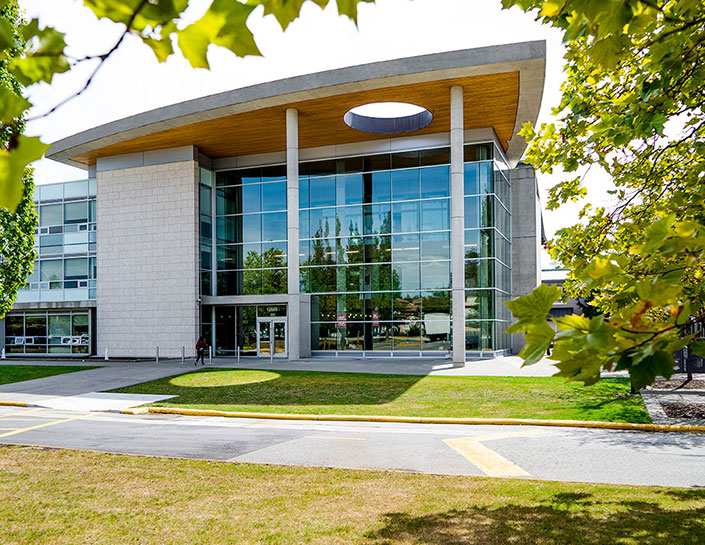
About KPU
For more than 40 years, Kwantlen Polytechnic University has provided students the skills they need for the careers they want. KPU offers a range of degree, diploma, certificate, and citation programs with opportunities for hands-on experience and experiential learning. We encourage students and external partners to work together since it gives students an opportunity to apply attitudes, skills, and knowledge in an employment or community setting.
Contact
For more information about Work-Integrated Learning, please contact:
For more information about programs and courses at KPU, please contact the Future Students' Office:
604.599.3030
study@kpu.ca
For university-wide initiatives, contact:
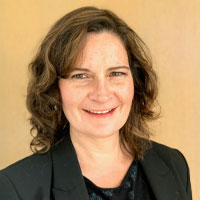
Larissa Petrillo, PhD
Special Advisor, Strategic Initiatives (Work-Integrated Learning), Office of the Provost & Vice-President, Academic
larissa.petrillo@kpu.ca
KPU is an accredited co-op institution with Co-operative Education and Work-Integrated Learning (CEWIL), the lead organization for work-integrated learning in Canada. KPU is also a member of the Association for Co-operative Education and Work-Integrated Learning BC/Yukon (ACE-WIL), a non-for-profit association of post-secondary, publicly funded institutions within BC/Yukon that offer work-integrated learning programs.


